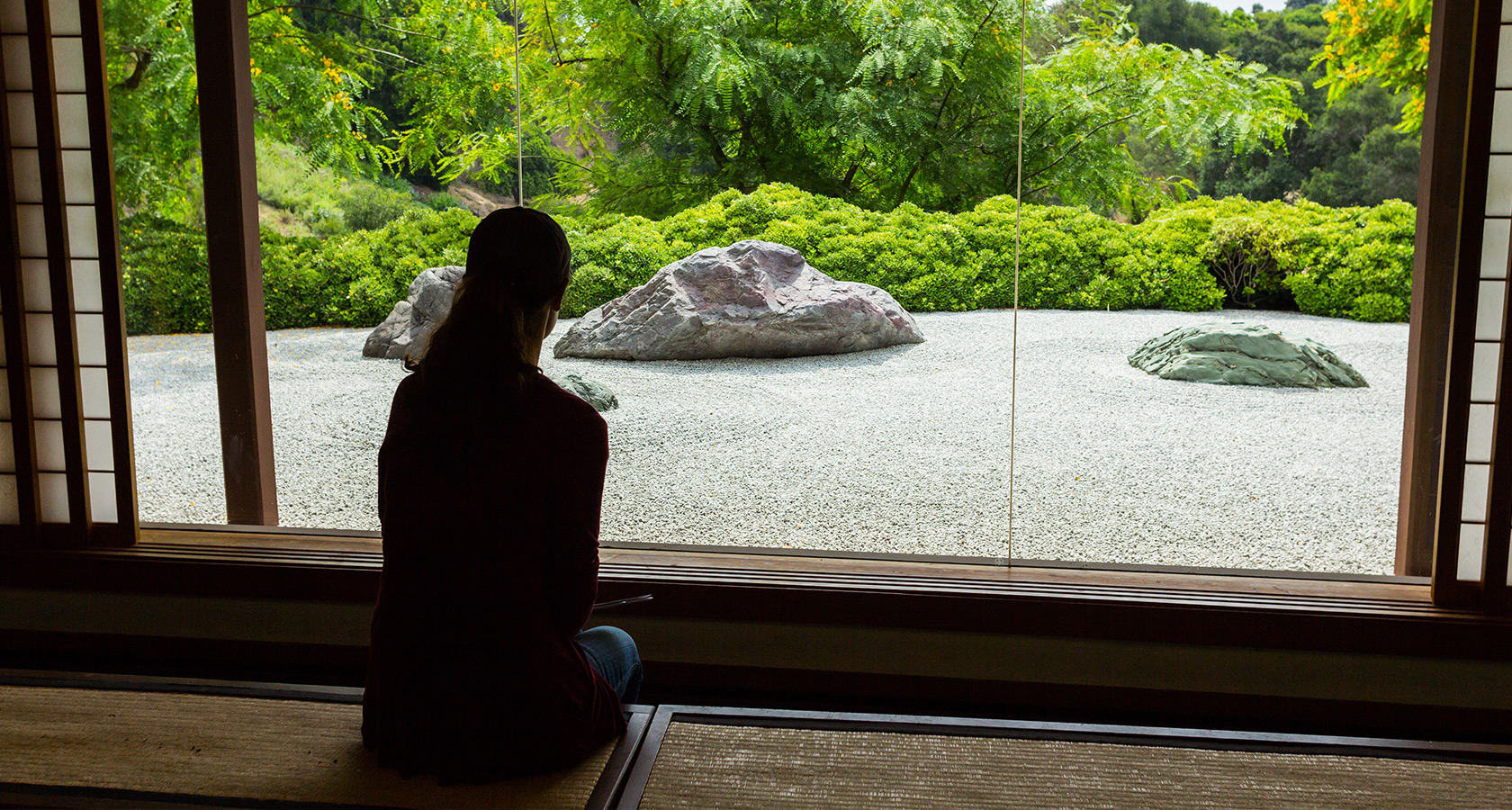Zen Buddhism

Zen Buddhism is not so much a religious belief, but a state of mind one hopes to achieve. There are no doctrines or strict rules one must follow, nor does it tell you what to think. Instead, and perhaps more importantly, it helps you understand how not to think.
It is said that the practice of Zen originated in India in ancient times. Buddha held up a flower and a disciple, Kasyappa, reacted by smiling. Kasyappa’s smile showed Buddha that Kasyappa understood the Dharma, regarded by some as an ultimate truth.
Zen believes that while the world we perceive is real enough, there is another plane of existence, one which can unlock our true selves and find happiness, if we have the diligence to discover it.
Zen represents a simplicity that is not easily described, an experience that cannot be taught only lived. Having a frame of mind in tune with Zen is, for believers, the only way to achieve the ethereal goal of knowing one’s true self.
Meditation is the key

Zazen can be translated into “seated meditation” and this is at the centre of Zen Buddhism. The sitting and sentence as long your brain empties of fears, desires, successes and failures leave you with further potential for self-discovery. It is a process of letting everything go in the hope of gaining a better understanding of who you truly are, and what makes you truly happy.
Although Zen has branched out, there is a common tie that connects every division – emptiness.
Understanding that emptiness is the first step to enlightenment, and losing one’s identity and emotions, as well as placing no importance on worldly goods is the only way you can find inner peace.
In the West, very prominent Zen teachings have come to the fore in both the USA and the UK, where these teachings are becoming more and more popular with a society that is increasingly dependent on consumerism. However, Japan is still the Holy Grail for those truly invested in Zazen, and thousands come to visit each year to experience these rituals that date back centuries.
Shun Koin in Kyoto is widely regarded as one of the leading temples in Japan for foreign guests, not least because of their website (www.shunkoin.com) has all the necessary details listed in English. Here you can enjoy meditation classes, hold a traditional wedding or even make the most of their accommodation, which mixes traditional meditation and daily routines, along with modern comforts, like western style bathrooms and even free wi-fi. If you go in a group of three and don’t mind sharing a room, you can pay as little as 5000yen (approx. 50 USD) each. Discounts are also available for returning guests or university students.
It is a truly enlightening experience, one that is made less daunting with the friendly, English speaking workers, and short meditation lessons to help the uninitiated get the most out of their stay.
You do not need to visit a temple however to gain the benefits of Zazen, all you need is a comfortable cushion, some peace and quiet and some patience. Although you can acquire a lot of knowledge from Zen masters, in the end, it is a self-taught life skill that you alone are charged with unlocking.